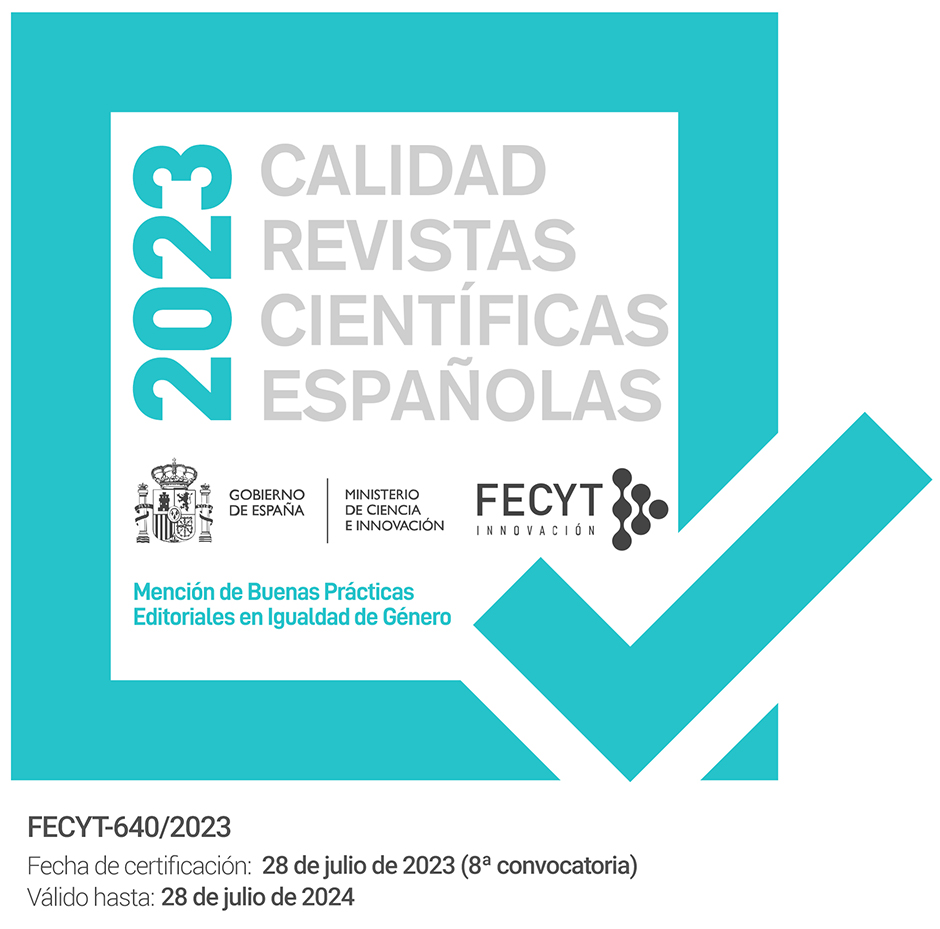Medication reconciliation during hospitalization in polymedicated pediatric patients: Perspective of the hospital pharmacist
DOI:
https://doi.org/10.60103/phc.v26.e840Keywords:
polymedicated; pediatric; reconciliation; medicationAbstract
Introducción: Chronic complex pediatric patients are usually polymedicated patients, being more susceptible to medication errors. Therefore, the need for medication reconciliation during hospitalization becomes evident.
Objectives: to pilot an experience in medication reconciliation at hospital admission in complex pediatric and/or polymedicated chronic patients and to identify and quantify the discrepancies between the treatment prescribed at hospital admission and home treatment.
Method: A prospective intervention study was carried out. A medication reconciliation was performed at admission (24-48 hours from admission) of those complex pediatric and/or polymedicated chronic patients, during 4 weeks.
Results: Of the total number of patients (n=18), 12 (66.6 %) had at least one discrepancy, and of these 9 (75.0 %) had unjustified discrepancies, 2 (16.6 %) had justified discrepancies and 1 (8.3 %) had both justified and unjustified discrepancies.
Conclusions: Our study highlights the existence of medication errors derived from the lack of reconciliation. Medication reconciliation at hospital admission decreases the probability of MS and, when carried out by a pharmacist, proved to be useful in the identification and prevention of these errors.
Downloads
References
Aranaz Andrés JM. Estudio sobre la seguridad de los pacientes en Atención Primaria de salud: APEAS. 2008. [Internet]. Seguridaddelpaciente.es [citado el 3 de enero de 2024] [Disponible: http://seguridaddelpaciente.es/resources/contenidos/castella no/2008/APEAS.pdf ]
Aranaz Andrés JM. Estudio Nacional sobre los efectos adversos ligados a la hospitalización: ENEAS Madrid: Ministerio de Sanidad y Consumo. 2005. [Internet]. Seguridaddelpaciente.es [citado el 3 de enero de 2024] [Disponible en: https:// seguridaddelpaciente.es/resources/contenidos/castellano/200 6/ENEAS.pdf ]
Roure C AT, Delgado O, Fuster L, Villar I. Grupo coordinador del grupo de trabajo de la SEFH de conciliación de la medicación. Documento consenso en terminología y clasificación de los programas de conciliación de la medicación. 2009. [Internet]. Sefh.es. [citado el 3 de enero de 2024]. Disponible en: https://www.sefh.es/bibliotecavirtual/conciliacion/Libro_consenso_terminologia_conciliacion.pdf
Burns A, Manuel L, Dickie A, Bessey J. Pediatric Pharmacy Services in Canadian Adult Hospitals: An Inventory and Priorization of Services. Can J Hosp Pharm. 2019;72(4) :301-10.
MINISTERIO DE SANIDAD. Estrategia para el Abordaje de la Cronicidad en el Sistema Nacional de Salud [Internet]. 1.ª ed. MADRID: MINISTERIO DE SANIDAD, SERVICIOS SOCIALES E IGUALDAD CENTRO DE PUBLICACIONES PASEO DEL PRADO; 2012 [citado 27 enero 2024]. Disponible en: https://www.sanidad.gob.es/organizacion/sns/planCalidadSNS/pdf/ESTRATEGIA_ABORDAJE_CRONICIDAD.pdf
Farmaceuticos.com. [citado el 11 de marzo de 2024]. Disponible en: https://www.farmaceuticos.com/wp-content/uploads/2020/02/consigue.pdf
Penela-Sánchez D, Ricart S, Vidiella N, García-García JJ. Estudio de los pacientes pediátricos crónicos complejos ingresados en un servicio de pediatría a lo largo de 12 meses. An Pediatr (Barc) [Internet]. 2021;95(4):233–9. doi:10.1016/j.anpedi.2020.07.028
Piloto E. CONCILIACIÓN DE LA MEDICACIÓN AL ALTA HOSPITALARIA EN FARMACIA COMUNITARIA [Internet]. Farmaceuticos.com. [citado el 11 de marzo de 2024]. Disponible en: https://www.farmaceuticos.com/wp-content/uploads/2020/02/LIBRETO-CONCILIA-DIGITAL.pdf
De courcey DD, Silverman M, Chang E, Ozonoff A, Stickney C, Pichoff D, et al. Medication Reconciliation Failures in Children and Young Adults with Chronic Disease During Intensive and Intermediate Care. Pediatr Crit Care Med. 2017;18(4):370-7.
Iturgoyen Fuentes DP MAS, Cuervas-Mons Vendrell M. Medication Reconciliation Upon Admission in paediatric hospital setting: preliminary data. Int J Clin Pharm. 2020.
Proyecto MARC. Elaboración de una lista de medicamentos de alto riesgo para los pacientes crónicos. Ministerio de Sanidad. Servicios sociales de igualdad. Madrid. 2014. [Internet]. Seguridaddelpaciente.es [citado el 23 de noviembre de 2022] [Disponible en: https://seguridaddelpaciente.es/resources/documentos/2014/Proyecto_MARC_2014.pdf
Cotrina Luque JG, Álvarez del Vayo Benito C, et al. Lista modelo de medicamentos de alto riesgo. An Pediatr. 2013;79(6):360-6.
Mueller SK, Sponsler KC, Kripalani S, Schnipper JL. Hospital- based medication reconciliation practices: a systematic review. Arch Intern Med. 2012;172(14):1057-69.
Downloads
Published
How to Cite
Issue
Section
License
Copyright (c) 2024 TERESA CHINCHILLA ALARCÓN, LUCÍA YUNQUERA ROMERO, CRISTINA FERNANDEZ CUERVA, CARMEN GALLEGO FERNÁNDEZ, ESMERALDA NÚÑEZ CUADROS

This work is licensed under a Creative Commons Attribution-NonCommercial-ShareAlike 4.0 International License.
La revista Pharmaceutical Care España se publica bajo una licencia «Creative Commons, Reconocimiento, No Comercial y Compartir Igual 4.0 Internacional» (CC BY-NC-SA 4.0)», que permite a otros compartir el trabajo con un reconocimiento de la autoría del trabajo y la publicación inicial en esta revista (con excepción de los usos comerciales).
Los autores que publican en esta revista están de acuerdo con los siguientes términos:a) Los autores conservan los derechos de autor (derechos morales) y garantizan a la revista el derecho de ser el primer soporte documental publicado del trabajo.
b) Se permite y anima a los autores a difundir la versión del trabajo revisado por pares y aceptada para su publicación (por ejemplo, en repositorios institucionales o temáticos), recomendando hacerlo con la versión final del editor “pdf”, “html” o “xml”).








